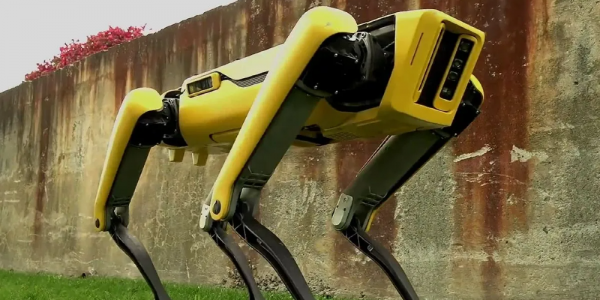A Boston Dynamics Executive Recently Called for a Moratorium on Armament of Robots
- 11/6/2022

Boston Dynamics, the robotics company responsible for developing some of the world's most advanced machines, has called for a halt to the arming of robots. The company's CEO, Marc Raibert, made the comments during a recent conference, warning that the development of robots that are able to kill could have disastrous consequences.
"I think there's a real danger if we allow robots to be weaponized with autonomous capabilities," Raibert said. "We're not close to having that kind of technology, but it could happen, and then where does it lead?"
Robots are increasingly becoming the main weapon of modern warfare. From bomb-defusing droids to sentry guns, these machines are being used more and more to keep soldiers out of harm’s way. But as they become more advanced, there is a risk that they could become too autonomous, making decisions without human input.
Raibert's comments come as the world's militaries are increasingly turning to robots and artificial intelligence to give them an edge on the battlefield. The US military, for example, is already using drones armed with Hellfire missiles and is developing autonomous tanks and other ground robots.
This was the worry of Boston Dynamics president Marc Raibert, who recently called for a moratorium on the weaponization of robots. In an interview with IEEE Spectrum, Raibert said that “once you give a weapon to a robot, there is no taking it back.” He went on to say that “we should not be creating robotic weapons of any kind.”
Raibert’s comments come at a time when the US military is increasingly interested in using robots in combat. The Navy has already deployed bomb-defusing robots in the Middle East, and the Army is testing out sentry guns that can identify and target threats.
Some experts have warned that the increasing use of robots in warfare could lead to a "arms race" in which countries compete to develop ever-more lethal machines. Others have raised the possibility of robots one-day becoming "terminators" that could turn against their human masters.
There is also a growing market for civilian-use robots, such as security guards and home assistants. While these robots are not currently armed, it is not hard to imagine a future where they are.
Raibert said that Boston Dynamics was not developing any weaponized robots and had no plans to do so. He called on other robotics companies to follow suit and refrain from developing such machines.
"We should all be thinking about the implications of this technology," he said. "It's not just about the military, it's about society as a whole."
Raibert’s call for a moratorium is a welcome one, but it remains to be seen if anyone will actually listen. The military has shown a willingness to use robots in combat, and the civilian market is only going to grow. It may be up to the public to demand that these robots are not given the power to kill.
But given the rapid pace of development in this field, it is surely an issue that merits careful consideration.
Latest Articles
- Elden Ring: Shadow of the Erdtree – A Journey Worth Remembering Long-awaited expansions often carry the weight of expectation, especially when following a release as widely loved and discussed as Elden Ring. With S...
![]()
- Steve Nielsen
- 7/7/2025
- Helldivers 2 Expands to Xbox: Super Earth Unites Gamers Beyond Borders It's not every day that the gaming community witnesses a unifying moment that resonates beyond platforms and preferences. Helldivers 2, the highly ant...
![]()
- Steve Nielsen
- 7/7/2025
- Unlocking the Rosetta Aptitude Test in Once Human: A Guide for Adventurers If you’re adventuring through Once Human’s fascinating, distorted world, chances are you’ve come across a particularly clever challe...
![]()
- Steve Nielsen
- 7/7/2025















